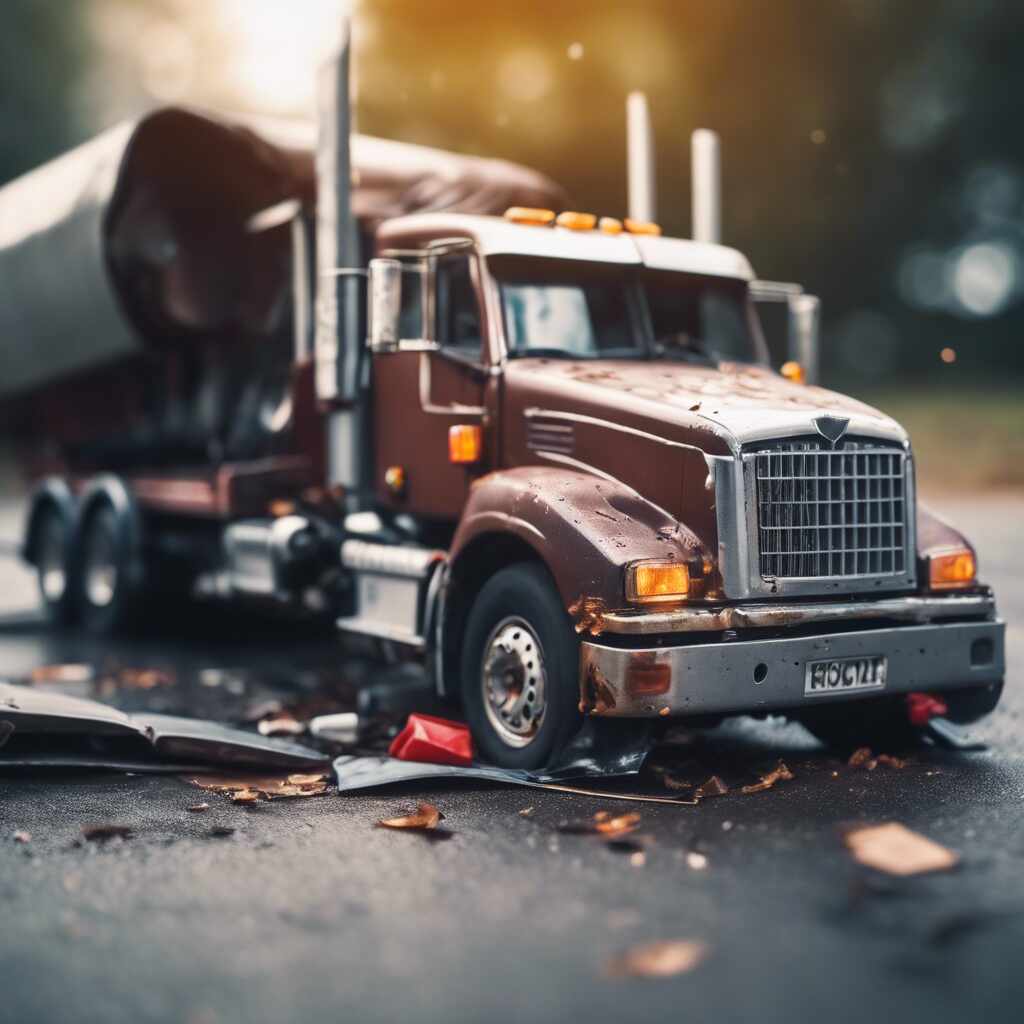Truck Accidents FAQs
Posted by enema@wfirm.com | Articles, Car Accidents
- Articles
- Artificial Intelligence
- Car Accidents
- Class Action Lawsuit
- Comparative Negligence
- Crime Victim
- Damages
- Defective Vehicles
- Disability
- Kratom Death and Injury
- Legal Marketing
- Motor Vehicle Accidents
- News/Media
- Other
- Pedestrian Accidents
- Personal Injury
- Results
- Sexual Assault
- Truck Accidents
- Uber
- Wrongful Death
Categories

1. What are the most common causes of truck accidents?
Truck accidents can be caused by various factors, including driver fatigue, speeding, distracted driving, improper maintenance, overloaded cargo, adverse weather conditions, and mechanical failures. Driver and violations of safety regulations are also significant contributors.
2. What should I do immediately after a truck accident?
Ensure your safety first by moving to a safe location if possible. Call 911 to report the accident and seek medical attention. Document the scene with photos and gather contact information from witnesses. Notify your insurance company and consider consulting with a lawyer.
3. Who can be held liable for a truck accident?
Liability can rest with multiple parties, including the truck driver, trucking company, cargo loaders, vehicle manufacturers, and maintenance providers. Determining liability often requires an in-depth investigation into the specific circumstances of the accident.
4. How does truck accident liability differ from car accident liability?
Truck accidents often involve commercial entities and are governed by more complex state and federal regulations. Liability can extend beyond the driver to include the trucking company, manufacturers, and subcontractors involved in maintenance and cargo loading.
5. What types of evidence are crucial in a truck accident case?
Key evidence includes police reports, eyewitness statements, photographs of the accident scene, black box data from the truck, maintenance records, driver logs, and any available dashcam footage. This evidence helps establish fault and the extent of damages.
6. How long do I have to file a claim after a truck accident?
The statute of limitations for filing a truck accident claim varies by state but typically ranges from one to three years from the date of the accident. It’s crucial to act quickly to preserve your rights and gather evidence.
7. What types of compensation can I seek in a truck accident case?
Victims can pursue compensation for medical expenses, lost wages, pain and suffering, property damage, and, in some cases, punitive damages. The specific compensation depends on the extent of injuries and financial losses incurred.
8. How is fault determined in a truck accident?
Fault is determined through an investigation that examines evidence such as accident reports, driver logs, black box data, and eyewitness accounts. Experts may also reconstruct the accident to understand the sequence of events and identify negligent parties.
9. Why is it important to hire a lawyer after a truck accident?
An experienced truck accident lawyer can help navigate the complex legal and regulatory landscape, gather crucial evidence, negotiate with insurance companies, and advocate for your rights to ensure you receive fair compensation.
10. What is the role of the truck’s black box in an investigation?
The truck’s black box, or event data recorder (EDR), captures critical information such as vehicle speed, brake usage, and engine performance leading up to the accident. This data can provide valuable insights into the cause of the accident and the driver’s actions.
11. Can I still recover damages if I was partially at fault for the accident?
Many states follow comparative fault rules, where you can recover damages proportionate to your level of fault. For example, if you are found 20% at fault, you can still recover 80% of the total damages.
12. What are common injuries sustained in truck accidents?
Common injuries include traumatic brain injuries, spinal cord injuries, fractures, internal bleeding, whiplash, and severe lacerations. Due to the size and weight disparity, truck accidents often result in more severe injuries compared to car accidents.
13. What should I do if the trucking company’s insurer contacts me?
It’s generally advisable to avoid giving a recorded statement or discussing the details of the accident with the insurance company’s representatives without consulting your lawyer. Insurers often seek to minimize their payouts, and anything you say can be used against you.
14. How long does it take to resolve a truck accident claim?
The duration varies widely depending on the complexity of the case, the severity of injuries, and whether the claim is settled out of court or proceeds to trial. Simple cases may resolve in a few months, while more complex cases can take several years.
15. What are my rights if a loved one was killed in a truck accident?
If a loved one was killed, you might file a wrongful death lawsuit to seek compensation for funeral expenses, loss of income, loss of companionship, and emotional distress. Specific rights and eligible damages vary by state, so consulting a lawyer is essential.